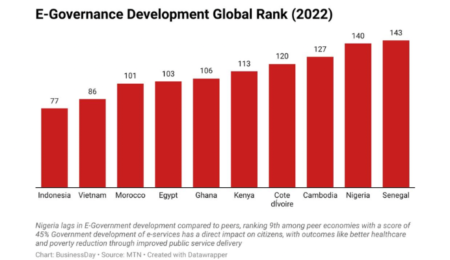The rising shortage of tech talents in Nigeria and organisations fuelled by the surging rate of “Japa” is gaining more concern.
Information Technology leaders speaking at the ongoing tech event hosted by CloudPro, themed, ‘The digital transformation journey’, said there is a need for organisations to start sourcing talents from the grassroots level and giving quality attention to their tech teams who work behind tirelessly to ensure the success of the company.
“We need to work on the pipeline of talents. The world will continue to need IT people and Nigeria is a source. Most of the tech talents that have left the country are self-trained. Nothing is stopping us from harvesting these guy’s from the 400 level or 300 level. Companies should also encourage graduate trainee programmes to train them from scratch.
“It is cheaper to gather forest talents who will always replace those that might leave. By doing so, we are also recruiting talent pool to feel the gap. It is a serious problem and I think we are the solution to it,” Oluleke Olatunji, chief information security officer, FSDH Merchant Bank said.
The panelists also discussed the need for organisations to give adequate attention to their tech talents and not see them as back-end workers who are not part of the company’s success.
Kemi Ajumobi, associate editor at BusinessDay Media Limited who doubled as the moderator of the panel session said,”The IT team should also be seen. Most of them complain of neglect. They contribute to the success of the organisations and also need to be encouraged.”
Ajumobi giving an instance with the bank explained that because they are not the cashier who is the endpoint between customers, doesn’t mean they should be seen as back end or doing less.
Speaking on digital transformation in today’s business landscape, Adetunji Lamidi, MD/CEO of FCMB Microfinance Limited, citing the financial s vice sector said competition and high customer expectations remains the key drivers of innovation.
He said the basic key drivers of digital transformation in the banking sector stem from the increased customer expectations, as customers are becoming more savvy and realising the need to be served in the most special ways.
“Growing competition as well is a big factor. When you realise that we are now in the world of digital disruption. It either you innovate or get kicked out. For us in the banking sector, we realized that potentiality. If you must continue to be there in the face of your customers, you have to be digitized,” Lamidi said.
The experts also urge institutions to always understand clients demand before engaging in innovations, stating that it becomes a problem when customers or consumers fail to adopt it.






